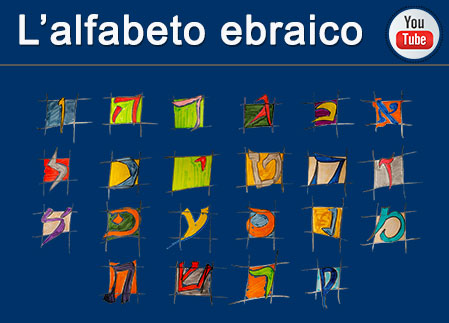Francois Cardinal Marty, Archbishop of Paris
Italia 12/10/1974
The following text is a translation of a statement made October 12, 1974 by Francois Cardinal Marty, Archbishop of Paris, to the bishops assembled at the Synod in Rome.Status Quaestionis
Can we, in preaching the Gospel, dispense with all reference to the Old Testament? Can we hold that the cultures of the different peoples or the living traditions of the different classes and social milieux constitute the only soil in which the proclamation of Jesus Christcan take root? Are the values of these peoples or of these social categories already, in themselves, pre-evangelical values so that all the apostle has to do is to repeat in their context the opening statements of the Epistle to the Hebrews?
Elements of Discussion
I. JESUS CANNOT BE UNDERSTOOD WITHOUT THE OLD TESTAMENT
The words, life, death and resurrection of Jesus of Nazareth cannot be understood outside their Old Testament context, for it is here that they took shape and that their precise meaning is to be found. One of the limitations of Cardinal Wojtyla's report is that it sees Jesus Christ as a starting-point, unconnected with the past, entirely self-constituted, whereas he is a fulfilment. He is the complete achievement of God's pedagogy, gradually unfolding from Abraham onwards. A true apprehension, theoretical and practical, of the person of Jesus is impossible outside biblical tradition, the whole aim of which is to reveal the Messiah of God. With this revelation it attains its plenitude.
II. THE CHRISTIAN FAITH IS FOUNDED ON AN HISTORICAL REVELATION
Reference to this tradition (which can henceforth be identified as that of the Old Testament and of the New) establishes Christianity within the framework of history as a deed (collection of deeds). This fact is undeniable, and it constitutes the real novelty of Christianity. To minimize this historical particularity of the Christian faith, as a particularity, is to minimize the novelty of that faith. It is, in fact, an attempt to
40
efface the act (or collection of acts) by which the faceless God takes shape and a human countenance in a particular language, a particular tradition and a particular people. The taking seriously of historical particularity has many consequences and it is important not to forget them.
1) Sense of the particularity of Israel's election
This particularity is the sign that man does not save himself through himself or through his own values, no matter how high; he is saved by Another. Christian salvation does not reside primarily in the success of historical human projects, but in the possibility of divinization which makes sense only if offered by the God of love. This free initiative of God is signed and sealed by the election of one people, then by one son drawn from that people. Born of a woman, he is nevertheless not born of flesh and blood because his origin lies in the Spirit who, in him, chooses man.
2) Importance of human cultures
The Jewish-Christian specificity has a universal value in itself (the value of the archetype of Israel). The early Fathers used to say that the ways God takes to approach us are the ways that we should take to approach him. The fact that his initiative was embodied in a specific tradition shows that the Christian does not become divinized by obeying commandments or formulations of faith, but by the conversion of his whole being and of all the social structures that constitute it. The completion of the Old Testament tradition in Christ sends the believer back to his own cultural specificity, there to live by the Spirit of Jesus. He must, in fact, « appropriate » this Spirit through his language, his traditions, his ideas, etc., in all of which the Gospel should find its meaning.
The task of evangelization is not accomplished merely by proclaiming Jesus Christ (extrinsicism). It should, in one and the same movement, send man back to the actuality of his history so that he may respond here and now to the Spirit of Jesus and discern what this Spirit demands of him in his affective, family, economic and political life. Evangelization thus supposes a double task: it is by contemplating Jesus of Nazareth, read about in the Scriptures and celebrated in the sacraments, that the believer incorporates his Spirit; this same incorporation sends him back to his own responsibilities in the heart of which he will better understand the message of Jesus. The circular movement of these two activities shows that if the believer pays no attention to the human « values » which are his by solidarity, he cannot live by the actuality of the Spirit (literalism), and that if he pays no attention to the message delivered by the Jewish-Christian tradition he will shut himself up in the immanence of his own culture.
3) Permanence of the reference to the Old Testament
To speak of transcending and of reverting to our cultural characteristics is not the same thing as to say that henceforth there is no place for reference to Old Testament tradition. Such a conclusion would result inthe thesis of a plurality of historical revelations incompatible with the uniqueness of the revelation of God in Jesus Christ. It would oblige each culture (and each social class) to understand itself as a self-sufficient totality and hence to live for itself alone; whereas Christianity, grafted onto Jewish tradition and going beyond it, comes to show each its own value and the necessity of opening out to others. The logic of the Incarnation decrees that Jesus should be born of a woman to be one of us, but that he should be conceived of the Spirit, because man must be spiritually recreated as an adopted son. The same logic decrees also that we take seriously the specificity of our cultures and their openness to Someone other than themselves, an openness which is the same thing as openness to others.
III. CHRISTIAN EXISTENCE CANNOT AVOID TENSION
Christian existence in history cannot avoid the tension which is essential to the structure of Revelation itself: God is one and three; Jesus is true God and true man in the unity of the Person of the Word; the sacramental order is necessary for salvation but inefficacious without faith. This same tension is found at the cultural level: the Christian is a man of one social category, of one language, of one tradition. By his reference to Jewish tradition he witnesses to the fact that he receives his salvation from God alone, and that nevertheless it is really he who receives it in the specificity of his humanity. Men would be blind to their final destiny without the promise of Beatitude; this promise would be insignificant if they did not receive it expressed in human values. Reference to the Old Testament means then that it is truly our humanity that is called to Beatitude, but that it is God who calls us.
29 visualizzazioni.
Inserito 01/01/1970
Relazioni Ebraico-Cristiane
Ultime novità nel sito
- 19/04/2020: Articolo - L’enigma della Maddalena
- 23/02/2020: Articolo - Il locus amoenus nelle catacombe ebraiche e cristiane di Roma
- 16/02/2020: Articolo - Il profetismo nel Vicino Oriente antico
- 13/02/2020: Articolo - I Profeti della Cappella Sistina
- 09/02/2020: Articolo - Gerusalemme e la Terra Santa di Israele


